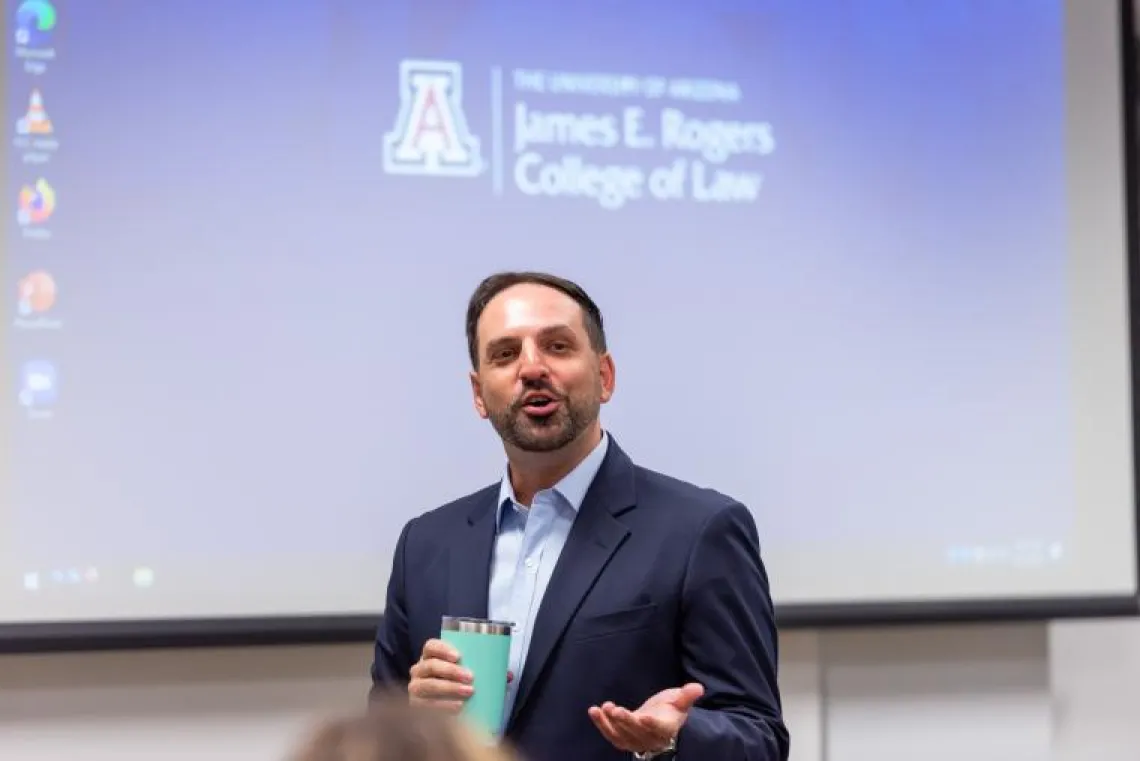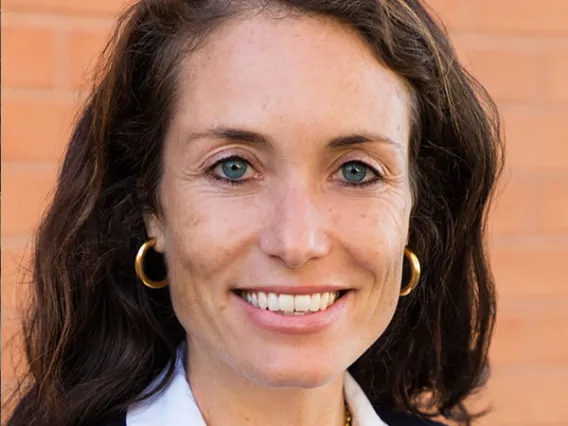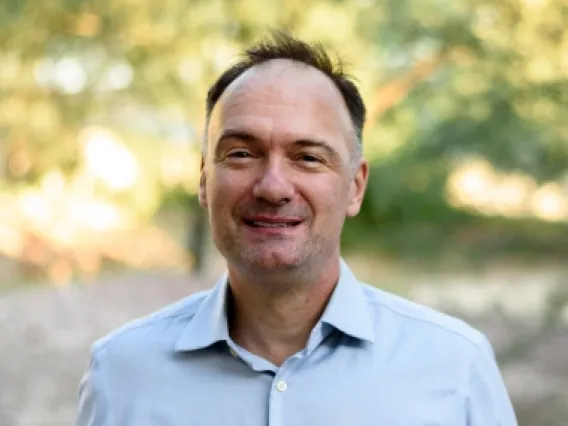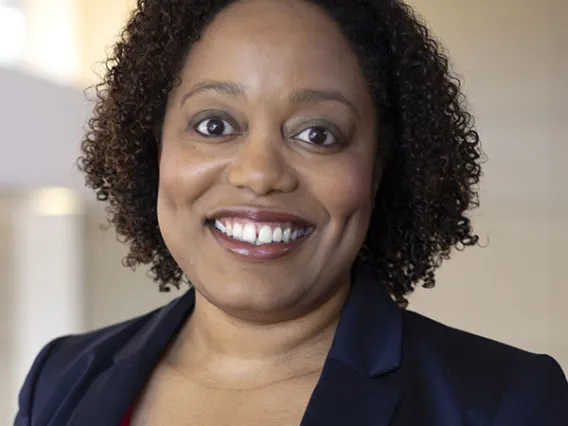
Leading the Way
In academic research and scholarship impacting the future of the law.
“From antitrust to constitutional law to privacy to quantum networks and indigenous peoples law, University of Arizona Law faculty are national and global leaders in their fields. Their work powerfully illuminates the contemporary legal landscape and points the way to a more just and equitable future.” - Andrew Coan, associate dean for research.
Explore recent scholarship from University of Arizona Law faculty

Rights of the Unmarried
James E. Rogers Professor of Law Albertina Antognini has been named Fulbright U.S. Scholar for the 2022-2023 academic year. After spending years analyzing the way courts handle claims of unwed partners after a relationship ends, she will travel to Stockholm, Sweden where she will conduct a comparative review of the country’s approach to regulating nonmarital relationships. Through this work she seeks to address the inherent inequality at the center of how courts view unmarried couples. In addition to Antognini, professors Andrew Woods and Negar Katirai have also been named Fulbright Scholars for 2022 and 2021, respectively.

The Future of Smart Contracts
A former principal systems engineer with IBM, Professor Derek Bambauer now teaches internet law and intellectual property with a research focus on internet censorship, cybersecurity, and regulation of information. In the summer of 2022, Bambauer along with colleagues from the University of Arizona’s School of Information and the Department of Computer Science were awarded more than $700,000 from the National Science Foundation for their work in bridging the technological gap between human-language wills and software-based smart contracts.

Algorithms in Juvenile Justice Systems
Tammi Walker, PhD and her collaborator from University of Arizona’s Department of Electrical and Computer Engineering were awarded funding from the National Science Foundation to engage in research about the construction and use of algorithms in juvenile justice systems, particularly in the use of risk assessment instruments in criminal justice and the limitations of machine learning. The project introduces the statistical notion of individual fairness to juvenile risk assessment, which has the potential to enhance efforts to reduce racial and ethnic inequality within the juvenile justice system by being consistent with more contemporary notions of disparity.

The Globalization of Electronic Evidence
In the era of cloud computing—where data crosses borders seamlessly— new and difficult questions are raised for companies receiving digital evidence requests from law enforcement, states exercising enforcement authority, and individuals seeking to protect their privacy. Professor Andrew Keane Woods provided oral testimony and a written report on this topic to the U.N. Security Council’s Counter-Terrorism Committee in January 2022, sharing his latest research on the major trends that contribute to the current state of cross-border data reforms. Woods is an expert in cybersecurity and the regulation of technology, with previous research focusing on data privacy and government access to data.

Reimagining Paid Sick Leave
In her latest work, Associate Clinical Professor of Law and Director of the Workers’ Rights Clinic Shefali Milczarek-Desai scrutinizes paid sick leave laws through the lenses of critical race, movement, and health law theories. She argues that existing paid sick leave laws fail immigrant workers because they ignore these workers’ social and economic situations and singularly focus on workers’ rights rather than collective well-being. Drawing from critical race, movement, and health law frameworks, her research situates paid sick leave within a public health matrix based on mutual aid.

The Economics of Law
Economists have long debated over whether antitakeover provisions – measures taken by a business to prevent it from being acquired – help or harm a company. But new research published in the Journal of Financial Economics from Simone M. Sepe, professor of law and finance, finds that when the market takes a hit, these provisions not only help to protect a company, but in some instances, they can actually increase its value. Sepe hopes the study will help business owners, CEOs and legal advisors understand the benefit of incorporating in states with more of these laws, as well as provide a resource for policy makers looking to propose more business-friendly policies in their districts.
